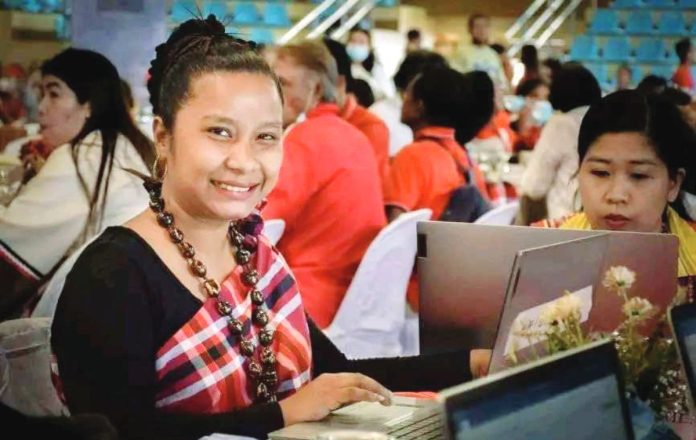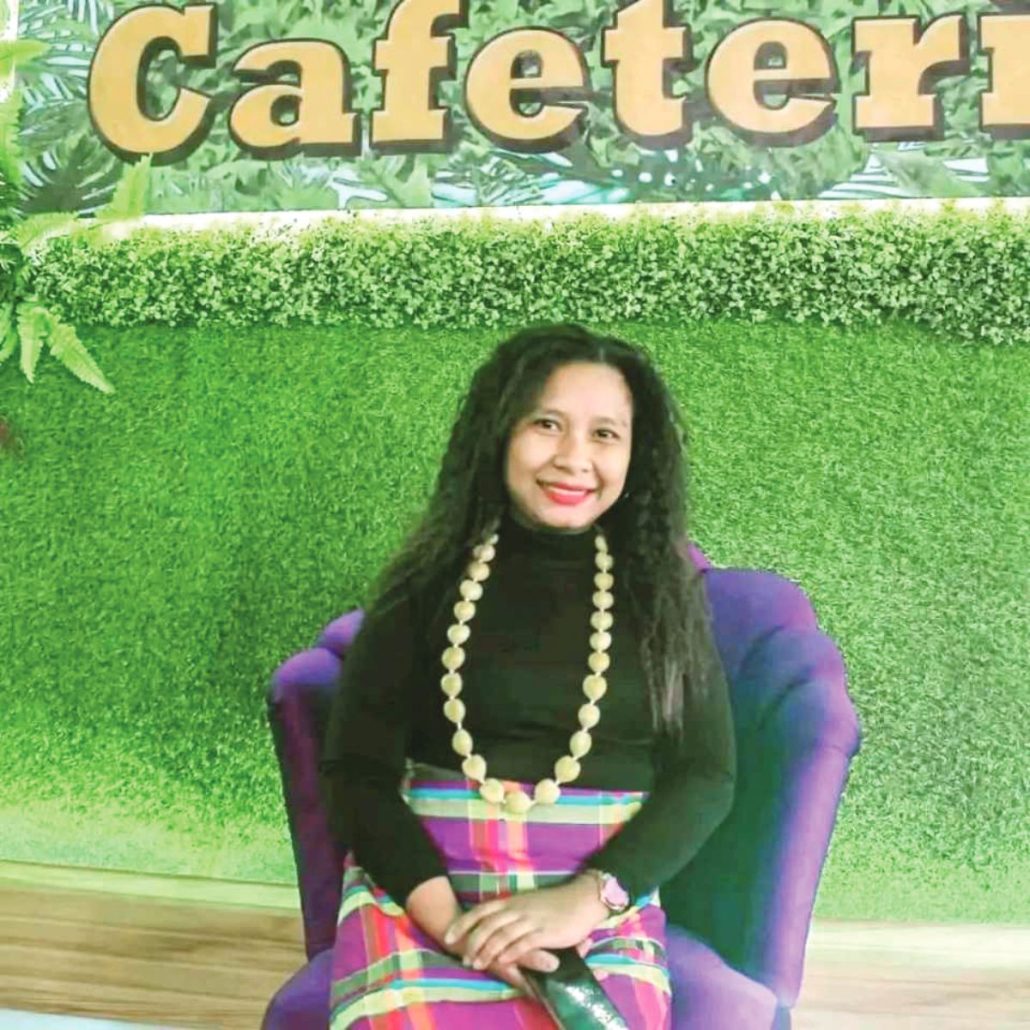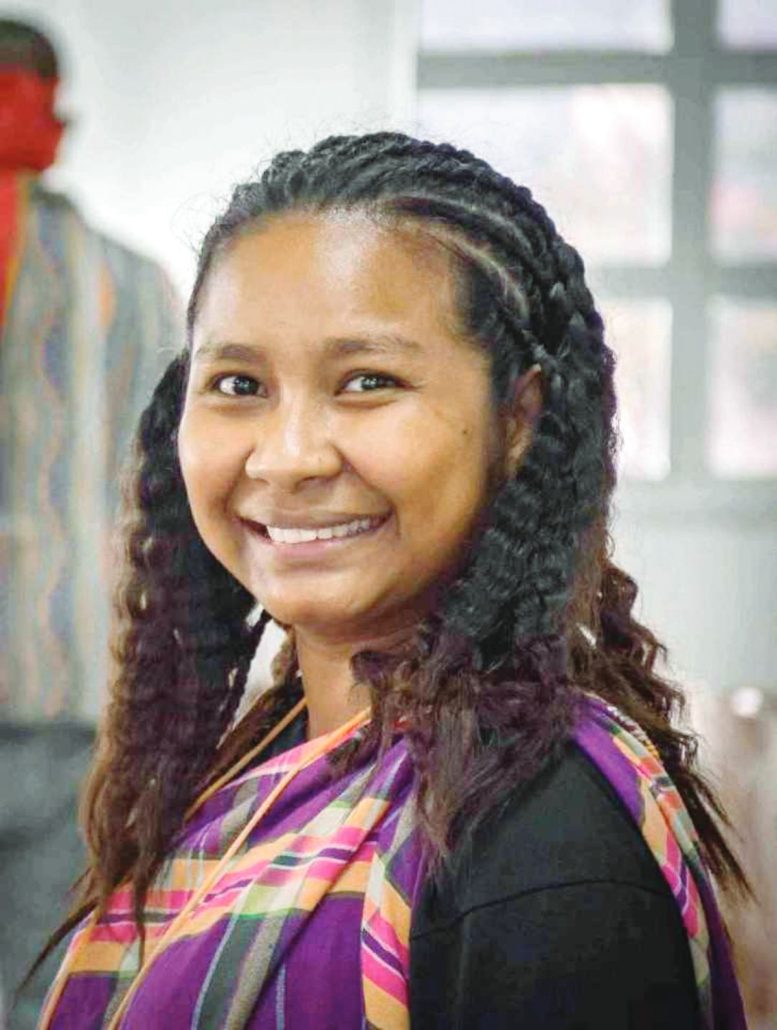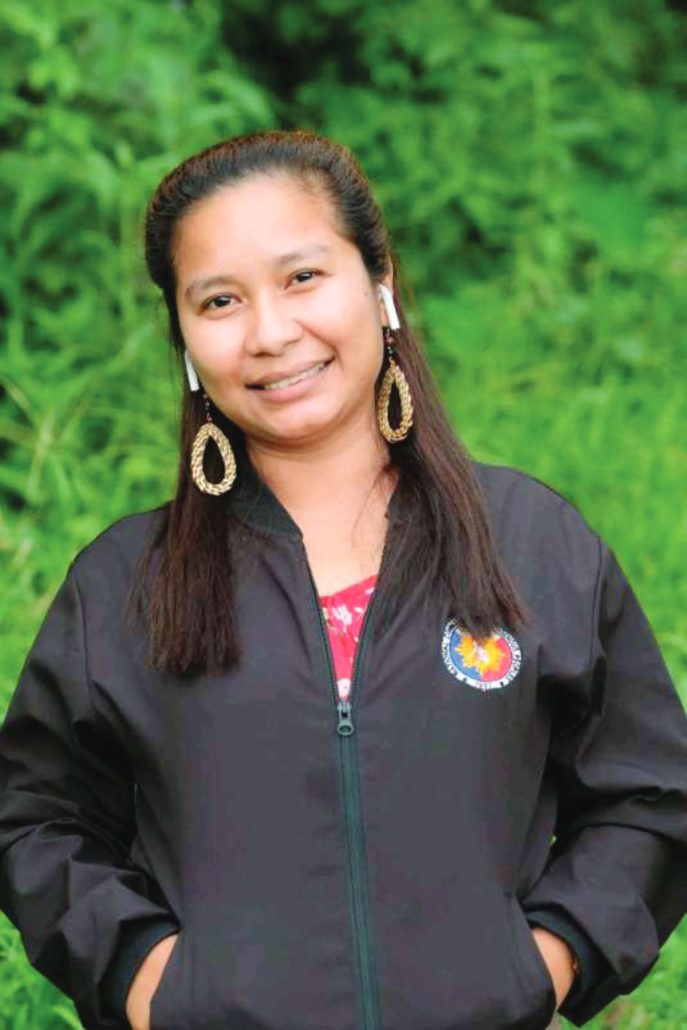
BY ROGER SIBAG JR.
WHEN THE tribulations feel relentless, for some, it is easier to give up than to confront their circumstances and rise above them. It is easier to question their worth and blame themselves than to question the society that perpetuates the hardship — so the cycle never ends.

“The obstacles seemed overwhelming at times, and it was hard to envision a way forward amidst such adversity,” shared Charlen Enario Panaguiton, an Ati — one of the indigenous peoples in Panay Island — as she recalled the struggles that brought her into a seemingly endless cycle of despair, believing there was no way out.
IN THE LOOP
Growing up as an Ati, Indhay Cha, now 34, already felt different from the rest of her peers. Her dark complexion, one of the distinct physical qualities of an Ati, subjected her to “painful” discrimination when she was still a student, becoming one of the hindrances in her academic pursuit.

Furthermore, poverty is one of the barriers she had to break. The earnings of her parents from farming and laundry work in Escalantera, San Joaquin, Iloilo were not enough, so there were times when she had to join her parents in charcoal burning to make ends meet. In third grade, she began working as a household helper enduring the loneliness of being away from her family for two years.
“I was determined to make the most of every opportunity that came my way,” said Indhay Cha, who despite the things that affected her education graduated cum laude at the West Visayas State University with a Bachelor of Elementary Education – General Education degree in 2007.
“First time ko tu, waay pa takon ka-sulod sa KFC kung waay ako gin-dara ni Ma’am Anne (It was my first time. I would have never gone to KFC if it weren’t for Ma’am Anne),” she mentioned narrating how her then cooperating teacher Dr. Antoniette Cortez let her experience one of her fondest memories during college.
Dr. Cortez shared, “I used to bring them in restaurants. One day, while we were lining up at KFC to eat, she started crying, only to find out that she was crying because it was her first time eating at KFC.”
EBB AND FLOW
Thinking that she broke free from those demoralizing encounters, her one year of teaching experience brought her back to her childhood years when she was treated inferior because of her ethnicity.
“One time, one of my students naghambal, ‘Maam itom itom sa imu, wala ka naga-paligo?’ Nagkadlaw lang ako (Once, a student sarcastically asked me, ‘Ma’am, why are you so dark? Do you not take baths?’ I just laughed it off),” she recounted.
On top of this, she also felt that she was politicized in the application process for a position in an education government office which disappointed her. The combined weight of workplace discrimination and systemic challenges led her to a decision to quit teaching in 2015.
“[My experiences] made me question my place and value in the profession. However, over time, I learned to channel these experiences into a drive for personal growth and resilience,” she revealed.
THE RENEWAL
The discrimination she faced at school and her workplace took a toll on her, but it also ignited her passion for ensuring that her fellow Indigenous people (IP) bear the same burdens she did because of simply who they are. Currently working as the Officer in Charge/ Community Affairs Officer I of the National Commission on Indigenous Peoples (NCIP), she vowed to serve her fellow IPs by advocating for their rights, supporting their needs, and amplifying their voices.
Despite reaching greater heights, she always gives back to her Ati community through organizing outreach programs. During one of their engagements, their team brought a photobooth so each family could have their own family picture — something she did not have growing up.
Being in a much happier place after a “refreshing” change — having a new profession close to her heart and escaping the grip of poverty — she continued to use the lessons she learned to grow and empower others, especially her fellow IPs.

“Do not be afraid and do not be ashamed. Embrace your identity with pride and recognize the inherent strength that comes from your heritage,” stated Indhay Cha as her message to her fellow IPs.
She grew up thinking that the world was against her but she learned when to fight back and when to walk away. Though she cannot change the past, growing up as an IP in a less privileged family, Indhay Cha is determined to build a kinder, more just future for her two daughters as a single mother and for her fellow IPs and let them experience the opportunities she never had as a young girl. The cycle ends with her. (Silak Media)







